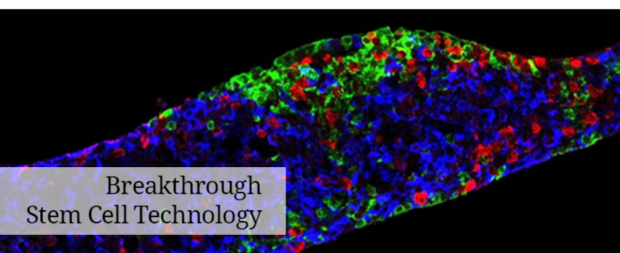
Breaking News
 Verizon to Slash 15 Percent of Its Workforce, About 15,000 Jobs
Verizon to Slash 15 Percent of Its Workforce, About 15,000 Jobs
 The SCARY SHIFT from SCARCITY to ABUNDANCE
The SCARY SHIFT from SCARCITY to ABUNDANCE
 Foreclosure surge signals housing market distress as costs spiral out of control
Foreclosure surge signals housing market distress as costs spiral out of control
 Nearly 1,000 flights canceled despite government reopening, disruptions expected for days
Nearly 1,000 flights canceled despite government reopening, disruptions expected for days
Top Tech News
 Blue Origin New Glenn 2 Next Launch and How Many Launches in 2026 and 2027
Blue Origin New Glenn 2 Next Launch and How Many Launches in 2026 and 2027
 China's thorium reactor aims to fuse power and parity
China's thorium reactor aims to fuse power and parity
 Ancient way to create penicillin, a medicine from ancient era
Ancient way to create penicillin, a medicine from ancient era
 Goodbye, Cavities? Scientists Just Found a Way to Regrow Tooth Enamel
Goodbye, Cavities? Scientists Just Found a Way to Regrow Tooth Enamel
 Scientists Say They've Figured Out How to Transcribe Your Thoughts From an MRI Scan
Scientists Say They've Figured Out How to Transcribe Your Thoughts From an MRI Scan
 SanDisk stuffed 1 TB of storage into the smallest Type-C thumb drive ever
SanDisk stuffed 1 TB of storage into the smallest Type-C thumb drive ever
 Calling Dr. Grok. Can AI Do Better than Your Primary Physician?
Calling Dr. Grok. Can AI Do Better than Your Primary Physician?
 HUGE 32kWh LiFePO4 DIY Battery w/ 628Ah Cells! 90 Minute Build
HUGE 32kWh LiFePO4 DIY Battery w/ 628Ah Cells! 90 Minute Build
 What Has Bitcoin Become 17 Years After Satoshi Nakamoto Published The Whitepaper?
What Has Bitcoin Become 17 Years After Satoshi Nakamoto Published The Whitepaper?
Pouch of stem cells implanted in trial to cure type 1 diabetes

The first implant procedures of the clinical trial took place at the University of Alberta Hospital in Edmonton, Alberta, and the UC San Diego School of Medicine's Altman Clinical Trials Research Institute. The goal of the open-label clinical trial is to evaluate the PEC-Direct product candidate for safety and definitive evidence of efficacy. In the coming months, the company expects to expand the trial to additional centers including the University of Minnesota and other sites in the US and Canada.
The first cohort of type 1 diabetes patients is receiving multiple small-format cell-filled devices called sentinels in order to evaluate safety and implant viability. These sentinel units will be removed at specific time points and examined histologically to provide early insight into the progression of engraftment and maturation into pancreatic islet cells including insulin-producing beta cells. A second cohort of up to 40 patients is expected to begin enrolling later this year to evaluate both safety and efficacy. The primary efficacy measurement in the trial will be the clinically relevant production of insulin, as measured by the insulin biomarker C-peptide, in a patient population that has little to no ability to produce endogenous insulin at the time of enrollment. Other important endpoints will be evaluated including injectable insulin usage and the incidence of hypoglycemic events. ViaCyte's goal is to demonstrate early evidence of efficacy in the first half of 2018 and definitive efficacy 6 to 12 months later.

 Unbanked In A Connected World
Unbanked In A Connected World

